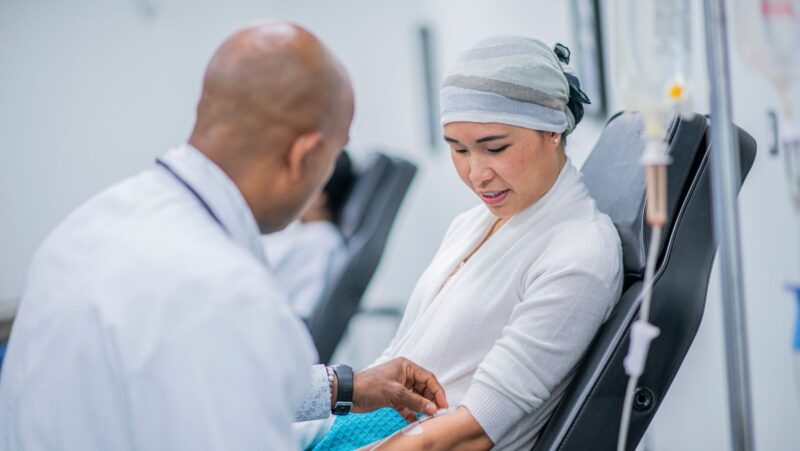
A Master’s in Health Science opens doors to diverse career opportunities in healthcare, research and public health sectors. This advanced degree equips professionals with specialized knowledge and skills to tackle complex health challenges while advancing their careers to leadership positions.
From healthcare administration to clinical research coordination graduates with this versatile degree can pursue multiple career paths. The comprehensive curriculum typically covers advanced topics in epidemiology healthcare policy data analysis and population health – preparing students for roles that impact both individual and community health outcomes. As healthcare continues to evolve rapidly the demand for professionals with advanced health science degrees keeps growing making it an attractive choice for those seeking stable and rewarding careers in the health sector.
What can you do with a Masters in Health Science
A Master’s in Health Science (MHS) degree offers advanced education in healthcare systems healthcare administration research methodologies biostatistics public health policy. This graduate-level program equips professionals with specialized knowledge in health promotion disease prevention population health management.
Core Curriculum Components
- Healthcare Management courses cover organizational leadership healthcare economics strategic planning
- Research Methods focus on data analysis epidemiology clinical research design
- Public Health Policy includes healthcare law ethics global health initiatives
- Clinical Sciences encompass anatomy physiology pathophysiology advanced diagnostics
- Population Health examines community health assessment program development health education
Program Formats
- Traditional on-campus programs require 2 years of full-time study
- Online formats offer flexible schedules with 18-36 month completion times
- Hybrid options combine virtual learning with in-person clinical experiences
- Accelerated tracks enable completion in 12-15 months for qualified students
- Health Administration
- Public Health Education
- Clinical Research Management
- Environmental Health
- Global Health Studies
- Health Informatics
- Community Health
| Program Requirements | Details |
|---|---|
| Credit Hours | 30-45 credits |
| Prerequisites | Bachelor’s degree |
| GPA Requirement | 3.0 minimum |
| Field Experience | 100-500 hours |
| Thesis/Capstone | Required in most programs |
Career Paths in Healthcare Administration
Healthcare administration offers diverse career opportunities for Master’s in Health Science graduates, with roles focusing on organizational leadership and system optimization in healthcare settings.
Hospital and Clinical Management
Healthcare executives with an MHS degree manage daily operations in hospitals, clinics, and medical practices. They oversee:
- Budget allocation across departments including emergency care, surgical units, and outpatient services
- Staff recruitment spanning positions from physicians to support personnel
- Quality improvement initiatives focusing on patient care metrics and satisfaction scores
- Facility operations covering equipment maintenance, supply chain, and space utilization
- Regulatory compliance with healthcare standards such as HIPAA and Joint Commission requirements
| Position | Median Salary (USD) | Growth Rate (2021-2031) |
|---|---|---|
| Hospital Administrator | $104,280 | 28% |
| Clinical Director | $98,350 | 23% |
| Practice Manager | $82,750 | 21% |
- Federal agency collaboration with CMS, FDA, and CDC to establish national healthcare standards
- State-level policy creation addressing regional healthcare needs and resource allocation
- Insurance protocol development for coverage terms and reimbursement structures
- Public health initiative design focusing on preventive care and population health management
- Legislative analysis of healthcare reforms and their impact on healthcare delivery systems
| Policy Role | Average Base Salary (USD) | Key Focus Areas |
|---|---|---|
| Health Policy Analyst | $75,690 | Regulatory Analysis |
| Policy Director | $115,400 | Strategic Planning |
| Compliance Officer | $89,120 | Regulatory Oversight |
Research and Academic Opportunities
A Master’s in Health Science opens pathways to diverse research positions and academic careers in healthcare institutions, universities and research organizations. These roles combine scientific expertise with practical healthcare applications to advance medical knowledge and improve patient outcomes.
Clinical Research Coordination
Clinical Research Coordinators with an MHS degree manage and oversee medical research studies from conception to completion. They develop research protocols, recruit study participants, collect data, monitor patient safety and ensure compliance with regulatory requirements. Common responsibilities include:
- Managing IRB submissions and maintaining regulatory documentation
- Training research staff on study procedures and protocols
- Coordinating with pharmaceutical companies and medical device manufacturers
- Analyzing research data using statistical software packages
- Publishing findings in peer-reviewed medical journals
| Clinical Research Coordinator Career Data | Statistics |
|---|---|
| Median Annual Salary | $75,800 |
| Job Growth Rate (2021-2031) | 17% |
| Required Experience | 2-5 years |
| Common Employers | Hospitals, Universities, CROs |
Teaching and Academic Roles
MHS graduates pursue teaching positions at colleges, universities and healthcare training programs. Academic roles involve:
- Teaching undergraduate health science courses
- Developing curriculum and assessment methods
- Conducting independent research projects
- Mentoring students in clinical settings
- Publishing academic papers and presenting at conferences
| Academic Position Types | Average Annual Salary |
|---|---|
| Assistant Professor | $82,500 |
| Clinical Instructor | $68,400 |
| Research Associate | $71,200 |
| Program Director | $89,600 |
These positions often combine teaching responsibilities with research activities, allowing professionals to contribute to both education and scientific advancement in healthcare fields.
Public Health Career Options
A Master’s in Health Science opens diverse career paths in public health, focusing on population-level health initiatives and disease prevention strategies. Public health professionals work to protect and improve community health through research-based interventions and educational programs.
Epidemiology and Disease Prevention
Epidemiologists investigate patterns and causes of diseases in human populations. They collect and analyze health data to identify risk factors for diseases, track outbreaks, and develop prevention strategies. Key responsibilities include:
- Designing public health studies to examine disease transmission
- Analyzing demographic health trends using statistical software
- Creating surveillance systems to monitor disease outbreaks
- Developing evidence-based prevention protocols
- Collaborating with healthcare providers on infection control measures
| Position | Median Salary (2023) | Job Growth (2021-2031) |
|---|---|---|
| Epidemiologist | $78,830 | 26% |
| Disease Prevention Specialist | $62,450 | 12% |
- Conducting community health needs assessments
- Creating targeted health education campaigns
- Managing program budgets ranging from $50,000 to $2 million
- Coordinating with local healthcare providers and agencies
- Measuring program outcomes using standardized metrics
- Supervising health education staff teams of 5-15 members
| Position | Median Salary (2023) | Job Growth (2021-2031) |
|---|---|---|
| Community Health Manager | $71,640 | 16% |
| Program Coordinator | $58,770 | 14% |
Healthcare Technology and Innovation
Healthcare technology innovators with a Master’s in Health Science develop digital solutions that enhance patient care delivery systems. They integrate emerging technologies into healthcare settings while ensuring compliance with medical regulations.
Health Informatics
Health informatics specialists manage electronic health records (EHR) systems that streamline patient data collection across healthcare networks. They:
- Design clinical decision support systems that analyze patient data
- Implement data security protocols to protect sensitive medical information
- Create interoperable systems connecting different healthcare facilities
- Monitor healthcare analytics dashboards tracking patient outcomes
- Develop standardized documentation processes for medical staff
| Role | Median Salary | Job Growth Rate |
|---|---|---|
| Health Informatics Manager | $98,350 | 32% |
| Clinical Systems Analyst | $88,740 | 28% |
| Healthcare Data Architect | $92,870 | 25% |
- Implementing telehealth systems for remote patient consultations
- Developing mobile health applications for patient monitoring
- Creating artificial intelligence algorithms for disease diagnosis
- Designing wearable technology interfaces for health tracking
- Integrating virtual reality solutions for medical training
| Digital Health Position | Median Salary | Growth Projection |
|---|---|---|
| Digital Health Director | $105,780 | 35% |
| mHealth Developer | $95,450 | 30% |
| Telehealth Coordinator | $82,330 | 28% |
Salary and Growth Potential
A Master’s in Health Science offers competitive salary ranges across various healthcare sectors. Here’s a comprehensive breakdown of median salaries and projected growth rates for key positions:
| Position | Median Salary | Growth Rate (2022-2032) |
|---|---|---|
| Healthcare Administrator | $104,830 | 28% |
| Health Informatics Manager | $98,350 | 32% |
| Digital Health Director | $105,780 | 35% |
| Epidemiologist | $78,830 | 26% |
| Clinical Research Manager | $92,450 | 24% |
| Public Health Program Director | $85,640 | 22% |
| Healthcare Consultant | $95,270 | 20% |
The highest-paying roles in health science include:
- Executive-level positions in healthcare systems ($150,000-$200,000)
- Private sector consulting ($120,000-$180,000)
- Pharmaceutical research management ($110,000-$160,000)
- Health technology leadership ($105,000-$145,000)
Geographic location impacts salary potential significantly:
- Metropolitan areas offer 15-25% higher salaries
- Northeast region averages 20% above national median
- West Coast positions pay 18% above national average
- Southern states average 10% below national median
Experience levels correlate with salary increases:
- Entry-level positions start at $65,000-$75,000
- Mid-career professionals (5-10 years) earn $85,000-$110,000
- Senior positions (10+ years) command $120,000-$180,000
- Executive roles exceed $200,000 with bonuses
- Project Management Professional (PMP) adds 12% to base salary
- Certified Professional in Healthcare Quality (CPHQ) increases earnings by 15%
- Health Information Management certification boosts salary by 10%
- Six Sigma certification adds 8-14% to annual compensation
Digital Health Innovation
A Master’s in Health Science opens doors to diverse and rewarding career paths across healthcare management technology research and public health. The degree’s versatility allows professionals to adapt to the evolving healthcare landscape while commanding competitive salaries and enjoying strong job security.
From healthcare administration to digital health innovation the opportunities for MHS graduates continue to expand. With projected growth rates ranging from 22% to 35% across various roles and salaries reaching up to $200000 for executive positions this advanced degree proves to be a valuable investment in one’s professional future.
The healthcare industry’s rapid transformation ensures that MHS graduates will remain at the forefront of improving health outcomes and shaping the future of healthcare delivery.













